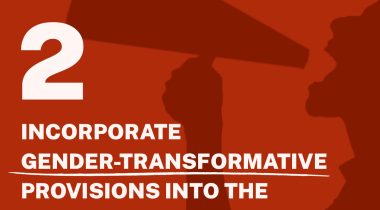
Nick Shaxson ■ Facebook ‘to pay more UK tax’. Let’s not get carried away

 Update: see Prem Sikka’s article “Facebook looks set to pay more UK tax but it might not be as much as you think.”
Update: see Prem Sikka’s article “Facebook looks set to pay more UK tax but it might not be as much as you think.”
The UK seems to be a bit of a canary in the mine on international corporation tax at the moment. This is because the British public is very, very exercised about these issues. The latest twist is a story, which the Guardian has written up under the headline “Facebook to pay millions more in UK tax.” The summary goes:
“Starting in April, the world’s largest social network will change its policy so that revenue generated from its largest advertisers displaying content on Facebook will be routed through the UK rather than Ireland. The change is expected to generate higher taxable profits in Britain and forms part of the US company’s plan to mitigate criticism of tax avoidance.”
Here’s a TJN statement about this, for starters. Alex Cobham, TJN’s Research Director, said:
“The announcement today raises more questions than answers. Facebook’s decision to allocate UK sales to major advertisers to its UK operation for tax purposes suggests that HMRC is completely unable to enforce corporate tax on major multinationals. Either this is completely voluntary from Facebook, and in fact unnecessary; or it should actually have been doing this for previous years too, which raises a question over what HMRC was doing then. Overall, this story simply confirms that international corporate tax rules remain in a mess, even after the OECD’s 2-year reform process.
Multinationals must be taxed on a unitary basis, recognising that they maximise profits at the global level and then apportioning those global profits between countries according to where the real economic activity takes place. Pretending that an entity like Facebook UK is operating independently from the rest of Facebook, maximising UK profit on its own, is absurd.”
And we’ll provide a bit of context, via Channel 4:
“The £4,327 figure that Facebook paid in corporation tax in 2014 is actually over £1,000 less than the average worker paid into the HMRC coffers over the same period.
A UK worker, who with an annual salary of £26,500, would contribute a total of £5,393 through income tax and national insurance.”
(For our international readers not familiar with this UK-focused story, Facebook really did pay just £4,327 in UK corporation tax in 2014.)
Next, we’ll point to this blog by UK tax expert Jolyon Maugham. The key message, in response to Facebook’s announcement, is this:
“Let’s not get carried away.”
And a couple of snippets, such as this one:
“What will now be taxed in the UK is the value added by a sub-set of a sub-set of Facebook UK’s staff.”
or this one
“none of the profits that the Facebook Monolith – i.e. if you assume a world in which what is economically a single entity is taxed like a single entity – makes on UK sales will be subject to UK corporation tax.”
and he points out that Facebook is carrying substantial tax reliefs, which it can carry forward into the future. Oh, and that they’re facing a ‘revenue enquiry’ by the UK tax authorities. Interesting.
Another question is: why is Facebook doing this now?
The answer, ultimately, is that they’ve simply been let off the hook for years, and now there’s public pressure to stop it. And it isn’t just the UK: look at what’s happening in France, for instance.
And it’s fair to say that NGOs like us have, in the recent words of a top U.S. tax official,
“eaten the lunch” of U.S. multinationals on setting and influencing the global political agenda.
We’re pushing at an open door – because the opposition doesn’t have a good argument to oppose us.
Related articles

Pope Francis, 1936-2025

Vulnerabilities to illicit financial flows: complementing national risk assessments

A tax justice lens on Palestine

New article explores why the fight for beneficial ownership transparency isn’t over
UN Submission: A Roadmap for Eradicating Poverty Beyond Growth
A human rights economy: what it is and why we need it

Strengthening Africa’s tax governance: reflections on the Lusaka country by country reporting workshop

Do it like a tax haven: deny 24,000 children an education to send 2 to school

Urgent call to action: UN Member States must step up with financial contributions to advance the UN Framework Convention on International Tax Cooperation


